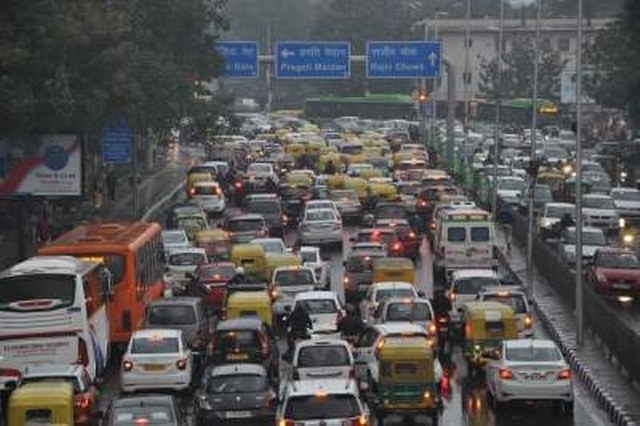Odd-Even scheme: SC had supported it earlier

File Photo: IANS
Photo: IANS
New Delhi: The odd-even vehicle rotation scheme of Delhi government, which is set to return to the national capital, was implemented twice earlier and the matter had reached even the Supreme Court due to a controversy.
Delhi Chief Minister Arvind Kejriwal announced on September 13 that the scheme would be implemented again from November 4 to 15 to curb pollution.
The scheme was first implemented in Delhi in January 2016 and the second time in April the same year.
According to the scheme, only odd-numbered private vehicles are allowed on odd dates and even-numbered on even dates.
Earlier, there was opposition from certain quarters to the scheme, which entailed a fine of Rs 2,000 for any violation.
Just two days before the scheme was to be implemented for the second time in April 2016, the matter had reached the Supreme Court.
The apex court had, however, refused to entertain a plea to cancel the Delhi government’s initiative, which is first and only of its kind in the country.
Then Chief Justice T.S. Thakur had dubbed the petition as a publicity stunt, and pointed out that the judges of the top court are already practicing car-pooling.
“People are dying of pollution. The government is taking steps to control pollution, therefore, everybody should cooperate,” the court had said.
The court has noted that rising levels of pollution is not in the interest of the society.
But at the same time, the Supreme Court had earlier exempted two-wheelers from the scheme. This exemption also included women plying two-wheelers and four-wheelers. The exemption of women from the scheme gave a huge boost to the Delhi government, as it had cited safety issues for the women.
The Delhi government, while announcing return of the scheme for the third time, said it is a part of seven-point action plan developed to fight air pollution in the winter.
Justifying the time-period, the government has attributed high level of air pollution occurring due to crackers on and around Diwali followed by stubble burning in neighbouring states.
As per the Graded Response Action Plan (GRAP) for Delhi and the National Capital, the odd-even scheme for vehicles automatically triggers when the air pollution gains a peak, for example, when the particulate matter PM 10 and PM 2.5 rises to 500 microgram per cubic meter and 300 microgram cubic meter respectively for 48 hours. This is termed as an alarming situation exposing citizens to greater health hazards.
IANS




